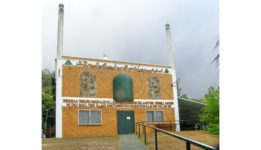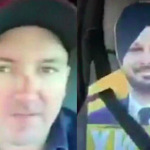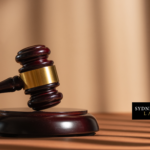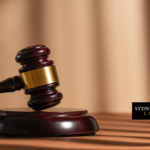Attacks at Australian Mosques Continue: An Interview With ANIC’s Bilal Rauf

A man carrying a machete approached a number of worshippers on their way to the side entrance of Holland Park Mosque in Brisbane’s southside at around 8.30 pm last Wednesday. After being alerted to his presence, the congregants rushed inside and locked themselves in.
Islamic Council of Queensland spokesman Ali Kadri told the Courier Mail that he’d reported the incident to police, but was concerned they hadn’t taken the matter seriously.
This is not the first time the mosque has been targeted by such a hate crime. Just last month, it was vandalised with spray paint. The graffiti referred to the Christchurch killer as “St Tarrant”, and this was accompanied by the white supremacist slur “remove kebabs”.
This sort of Islamophobic incident is certainly not limited to Holland Park Mosque. It’s part of a broader rise in anti-Muslim sentiment since the Christchurch massacre. Indeed, on Tuesday last week, a bomb threat was made against Buranda Mosque in Brisbane’s south east.
Tragedy born of ignorance
The world was horrified by the unprovoked violence that was waged against the Muslim community in Christchurch on 15 May. And politicians and media didn’t dare refer to this massacre as anything than what it was: an act of terrorism.
The majority of Australians had to come to grips with the fact that the perpetrator was a product of our community. The killer was an Anglo Australian man, who’d grown up in the NSW regional town of Grafton.
Then Australian Senator Fraser Anning felt entitled enough to put out a media release just hours after the tragedy occurred, in which he implied that Muslim immigration was to blame for the massacre, and not some nutjob emboldened by white privilege and anti-Islamic prejudice.
However, while Anning is thankfully long gone, it’s politicians of his ilk that have been mouthing off with Islamophobic sentiment over the past two decades, which only serves to encourage so-called patriots to continue on with hate crimes.
Representing Islam
The Australian National Imams Council (ANIC) issued a statement in the wake of the latest “potentially life threatening incident” at Holland Park Mosque, in which it calls on local authorities to “take more seriously the risks and dangers of white extremist and nationalist ideology”.
The ANIC is the peak national Islamic body holding key representation from Muslim clerics across the country. The council’s executive board elects and appoints the Grand Mufti of Australia.
Sydney Criminal Lawyers spoke to ANIC spokesperson Bilal Rauf about the spike in Islamophobic attacks in this country, the inadequacy of the responses from authorities in the face of increasing white nationalism, and the need for legislative action.
Firstly, last week, a man carrying a machete approached a number of congregants at Brisbane’s Holland Park Mosque. Mr Rauf, what actually happened?
As I understand, there was a group of congregants, who were walking towards the mosque. One of the residents on the street saw a man walking towards them with a machete. The neighbour called out to them, at which point, they all raced into the mosque and locked the doors.
At that point, the man was seen to walk off and he didn’t return.
But, this is not the first time something like this has happened at the mosque of late. How is the local Muslim community feeling about it?
They’re feeling very distressed about what’s been happening. Recently, the mosque was subject to some graffitiing. And not just any graffiti, but the praising of Tarrant.
And also, with the graffiti “remove kebab”, which is a term that’s derived from overseas white supremacist groups, who have referred to it as meaning remove Muslims, or annihilate Muslims. That was scrawled on the wall of the mosque as well.
So, naturally, incidents such as that – and seeing somebody walking towards worshippers with a machete at a mosque – has created a heightened sense of fear and concern.
Recent Islamophobic incidents haven’t been limited to Holland Park Mosque either. What else has been occurring?
There have been other places of worship targeted as well. The Canberra Mosque was broken into, and books and things were strewn on the ground. Shelves were also pulled to the ground. It was left in a mess.
But, more generally, there’s certainly been increased reports coming back through to the Imams Council, and also the Islamophobia Register, whereby a lot of females have been approached in public spaces: shopping centres, public transport.
This has been particularly with women wearing the veil, who are identifiable. They’ve been approached and comments have been made. There’s been aggressive body language towards them. Some of them have also been with children.
So, there’s been a spike in incidents such as that. And unfortunately, those most exposed tend to be the ones most vulnerable.
What’s the Australian National Imams Council putting these anti-Muslim incidents down to? And are they on the increase at present?
Leading up to and close to the Christchurch tragedy, there was a more enabling environment, where media and politicians were more readily utilising language directed at Muslims, which fostered a certain contempt or hatred.
You had the Fraser Anning statement. There were the Pauline Hanson statements. Then there were media reports about Coalition ministers in the past suggesting an opportunity to utilise Muslims as a way to garner votes. All of that creates an enabling environment.
There’s no doubt there was also an increase in right-wing extremist ideologies coming to the surface, and people were feeling more emboldened to speak out as to those ideologies.
A lot of it culminates in conduct against the people who are the subject of those ideologies. And this leads to the feelings of hate and contempt being made manifest against them.
How would you say the authorities are responding to the issue at present?
The reality is it probably hasn’t been given the same level of urgency or priority, as say religious motivated terrorism, where you suddenly see a raft of legislation being passed.
Whereas here, there’s been nothing in terms of legislative response, and also in terms of how the authorities have responded to and reviewed such incidents, as well as the resources that have been directed to investigating and following up on such incidents.
It appears, at least anecdotally to us, that the response has been somewhat limited. So, that makes it all the more challenging.
But, these are things that we are having written dialogues with the agencies about, in the hope that more urgency will be attached to it.
For instance, following the Holland Park incident, a statement was put out by the Queensland community imploring politicians and agencies to put more resources and attention into these matters, because there hasn’t been to date.
The last thing we want is a tragedy such as Christchurch happening here.
And lastly, Mr Rauf, what is the ANIC calling on the Australian government to do about increasing nationalist mobilisation in this country?
Acknowledge that it is a real issue. It is an issue that’s now beginning to have impact at a broader level. And it also carries significant risks and dangers, so there needs to be attention given to it in terms of legislative response.
But, also allocating resources so that appropriate agencies are able to investigate and pursue these issues with the same vigour that they have in pursuing other matters in the past. For instance, so-called religious-based conduct.
We have now an increasing threat from a certain ideology and a group of people, who prescribe to that ideology, yet it appears there’s very little being done. And certainly, on social media and other places it’s rampant.







